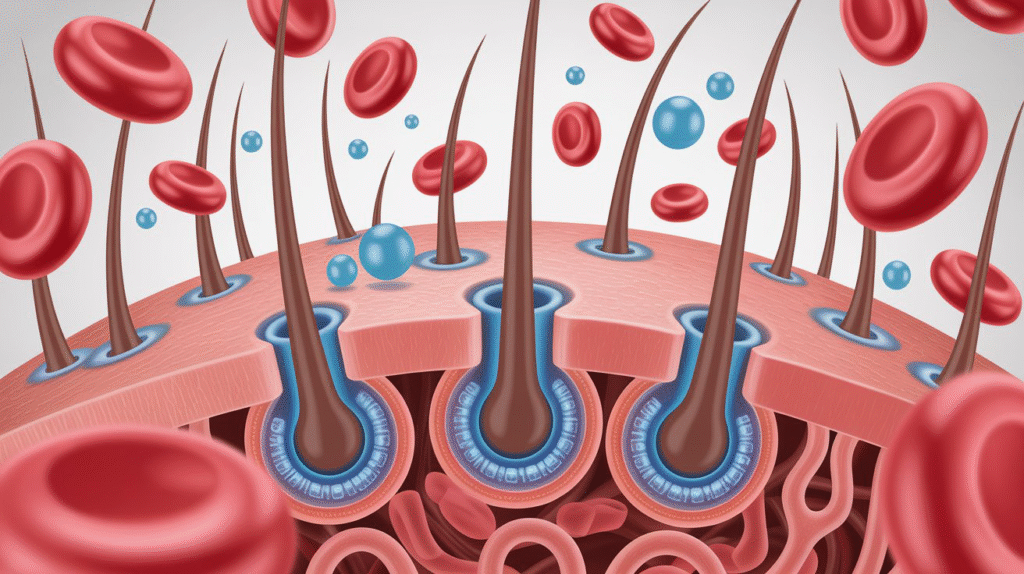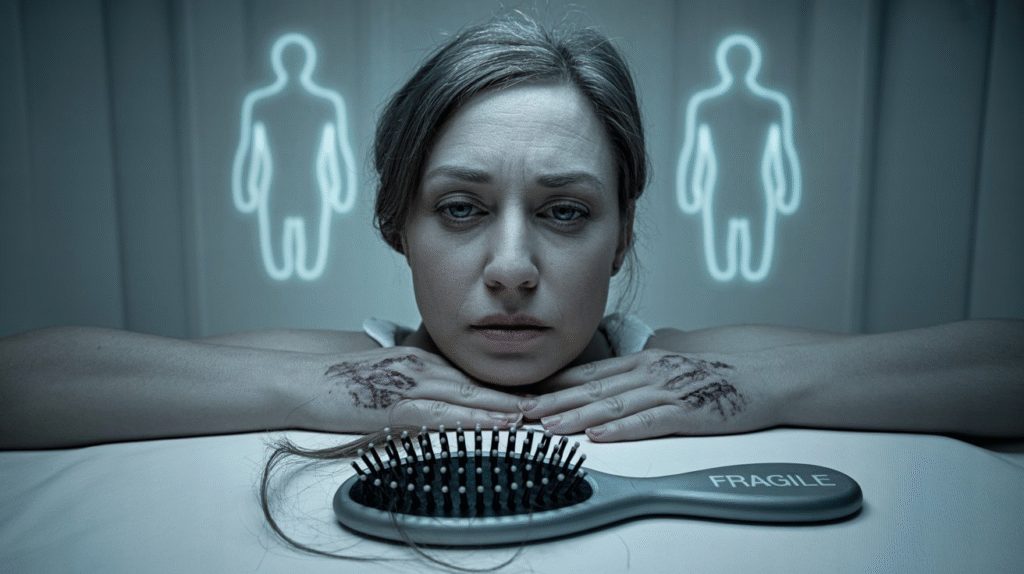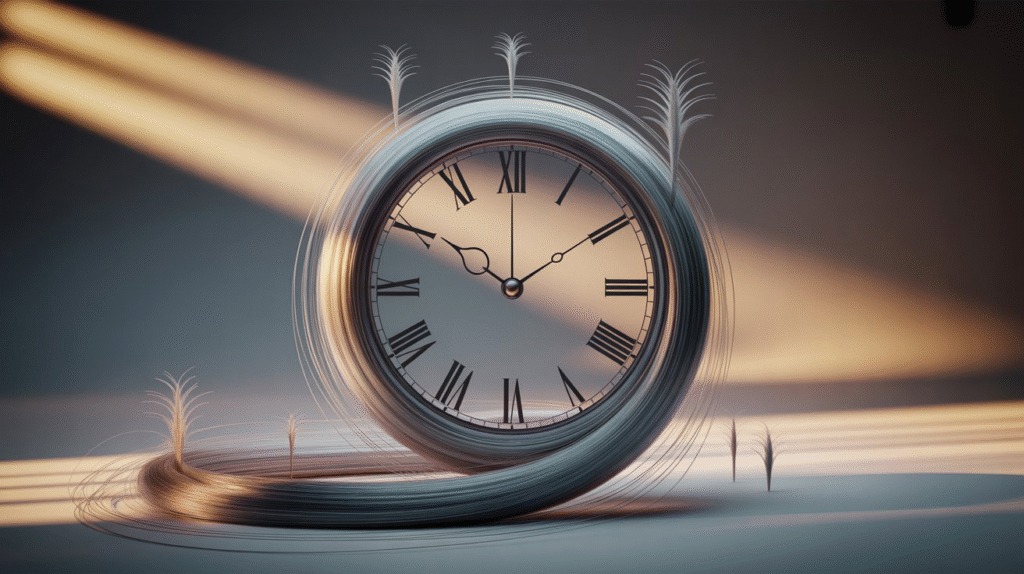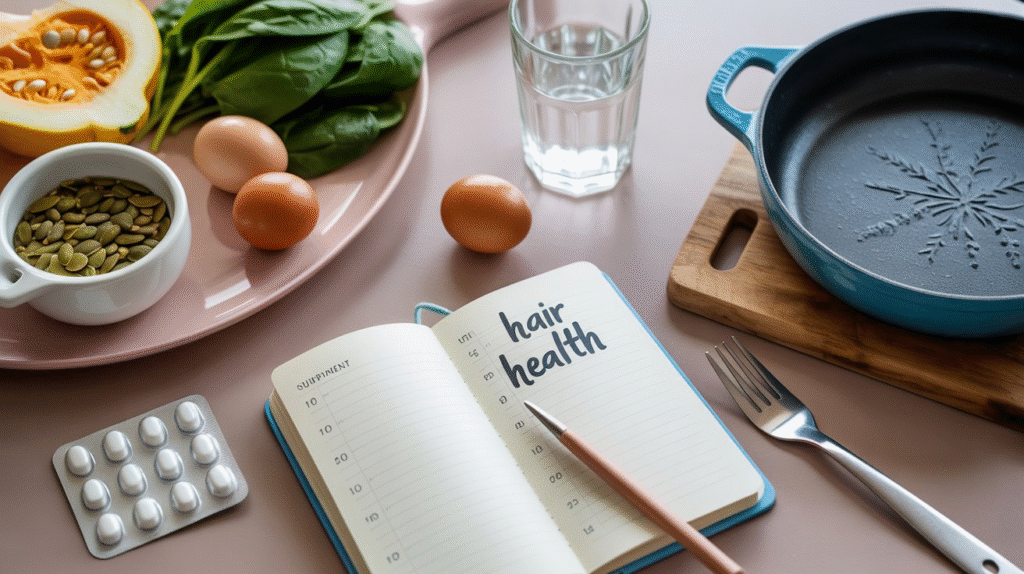Are you helplessly gazing as ever more hair clogs your drain daily?
You’re not alone—and the reality is, your body may be silently yelling for two potent nutrients: iron and zinc.
Hair loss isn’t all about genes or bad hair shampoo. It’s usually a sign that your body is deficient in something critical. If you’ve already tried every oil, serum, and grandma remedy without getting results, it’s time to stop guessing and begin to tackle the underlying cause—literally. Iron and zinc could be the missing link between your present hair loss and the thick, healthy locks you envision.
So consider this question: What if the solution to reversing your hair loss was already in your blood, waiting for you?
The Science Behind Iron and Zinc for Hair Growth:

Iron and zinc are trace minerals, but their effects on your hair are enormous. Your hair follicles and scalp rely on a constant supply of oxygen, nutrition, and cell regeneration. Iron maintains red blood cell manufacture, keeping oxygen in circulation for your scalp. Zinc is responsible for tissue growth, repair, and hormone balance.
When you’re running low on iron and zinc, your body prioritizes core functions over non-essential tasks such as hair growth. What happens? Hair fall, thinning, and dull hair.
You May Be Deficient in Iron and Zinc If:

Hair loss isn’t the only red flag. Iron and zinc deficiency might also manifest as
- Recurring fatigue or weakness
- Brittle nails and dry skin
- Weakened immunity or frequent sickness
- Slow wound healing
- Scalp itchiness or dandruff
If you find yourself presenting with any of these signs combined with hair loss, iron and zinc deficiency may be the sneaky culprit.
How to Get Iron and Zinc from Your Diet:
Nature supplies everything we need for healthy locks—if we know where to search. Increasing iron and zinc via your diet is the most natural and eco-friendly solution.
Best Food Sources of Iron:
- Red meat, liver, and organ meats
- Lentils, beans, and tofu (for vegetarians)
- Spinach and dark leafy greens
- Fortified cereals and whole grains
Best Food Sources of Zinc:
- Oysters (one of the richest sources)
- Pumpkin seeds, sesame seeds
- Chickpeas, lentils, and beans
- Dairy products and eggs
- Dark chocolate (yes, really!)
When pairing iron- and zinc-rich foods, don’t forget to pair iron with vitamin C (such as oranges or bell peppers) for improved absorption. Also, avoid tea or coffee during meals, since they hamper iron absorption.
Do Iron and Zinc Supplements Work for Hair Growth?
Yes—but with caution.
If a blood test detects a deficiency, your doctor may prescribe iron and zinc supplements. These can replenish your body’s reserves quickly and trigger hair regrowth. But over-supplementation can be detrimental, particularly with zinc, which can interfere with copper balance or result in nausea.
Pro Tip: Find combined iron and zinc supplements that are formulated especially for skin and hair health. These usually contain biotin, vitamin C, and folic acid for added effects.
How Long Until You Notice Effects from Iron and Zinc:

Hair does not grow overnight. But with regular consumption of iron and zinc, the majority of individuals begin noticing tangible improvements in 2 to 3 months. New hair growth, less hair shedding, and softer hair texture are some of the early symptoms.
Be patient—your hair is a reflection of your internal wellness, and real healing takes time.
Why Hair Oils Alone Can't Fix Hair Loss:
Most hair treatments, masks, and oils are superficial only. But hair grows out of the root, and if your zinc and iron are out of whack, no product on the outside can correct it. It’s like watering a plant that has no soil nutrition—it will not grow.
Correcting your internal nutrition is the strongest first step you can take.
Easy Daily Routine to Improve Iron and Zinc for Hair Growth:

- Take iron- and zinc-rich foods every day, not sporadically.
- Cook with cast iron cookware—it adds small amounts of iron to food naturally.
- Don’t miss meals, especially breakfast, to make nutrients consistent.
- Don’t overdo processed foods, which can interfere with mineral absorption.
- Drink plenty of water, as dehydration impacts nutrient transport and scalp condition.
When People Reversed Hair Loss with Iron and Zinc
A 29-year-old lady with post-pregnancy hair loss found out from a blood test that her iron and zinc levels were critically low. Within three months of taking iron supplements and consuming a zinc-laden diet, her hair loss decreased by 70%—with noticeable baby hairs growing back along her hairline.
A 40-year-old male struggling with stress and a receding hairline found relief by merely adding pumpkin seeds, red meat, and multivitamins to his lifestyle. His barber marked the change before he did in six months.
Final Thoughts: Ready to Regrow Your Hair Naturally?
Hair loss feels like a battle lost—but it shouldn’t have to be. If you’ve been neglecting iron and zinc, chances are you’re lacking the essential nutrients that drive hair regrowth from the inside out. Whether you get them through improved nutrition, special supplements, or a lifestyle overhaul, addressing these deficiencies may be your turning point.
Don’t wait until more hair falls out. Begin feeding your body—and your roots—today.
Have questions regarding iron and zinc for hair growth? Leave them in the comments or forward this post to someone who’s having a hair loss problem. Let’s get back your confidence—one strand at a time.
🧠 FAQs:
Yes, many hair-growth formulas combine them. But it’s best to consult a healthcare provider to avoid overdose or poor absorption.
Yes, but it requires planning. Plant-based sources are available but may be less bioavailable. Consider fortified foods or consult a dietitian.
Yes. High levels can cause toxicity, liver issues, or interference with other minerals. Stick to the recommended daily intake unless prescribed otherwise.
Yes, in appropriate doses. In fact, both are critical during pregnancy—but always consult your doctor.